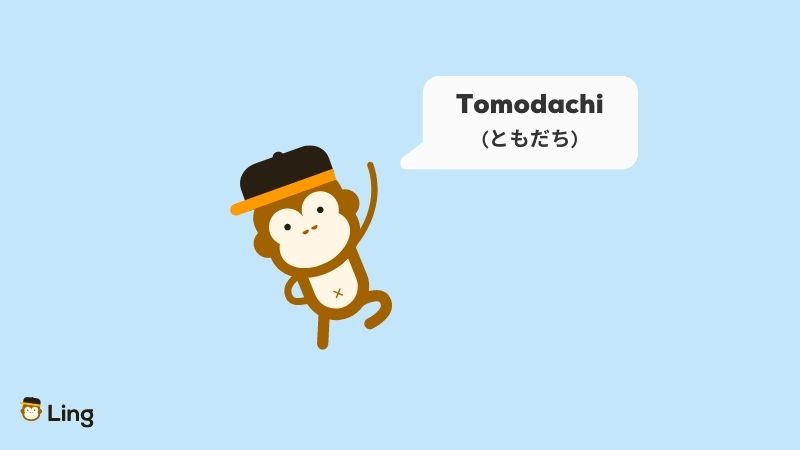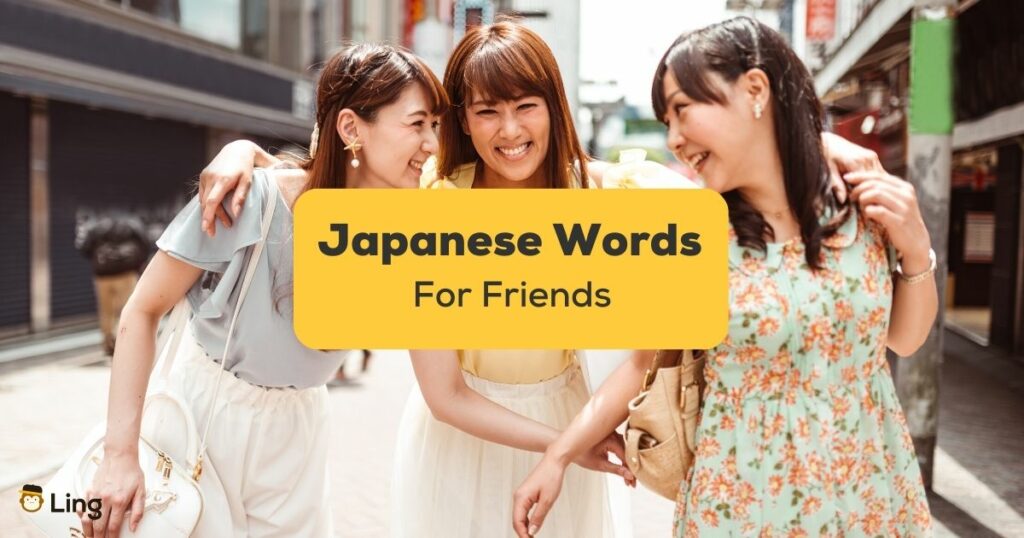Wondering about the common Japanese words for friend? Gon, Killua, Ash, and Pikachu are among the most iconic and beloved friendships in the world of anime. These characters have captured the hearts of fans worldwide, showcasing the power and importance of strong bonds. In our journey to learn Japanese, it is only fitting to explore various words used to express friendship.
One of the fundamental aspects of language learning is understanding how to describe relationships and connect with people from different cultures. When we venture to foreign lands like Japan, we inevitably encounter individuals who may become lifelong companions. Even if we don’t have the opportunity to visit Japan, anime is a powerful source of inspiration, urging us to seek genuine friendships that endure both joys and hardships. In this article, we will delve into different ways to express the idea of “friend” in Japanese, with a focus on the term “ともだち” (tomodachi).
Different Japanese Words For Friend
Friendships come in various forms and degrees of closeness, with different types and levels depending on the nature of the relationship. We encounter close friends like family, acquaintances we meet casually, and work friends with whom we share a professional bond. The Japanese language offers an array of words and expressions to describe these nuanced friendships, surpassing the options available in English.
Friend – ともだち(Tomodachi)

Example Sentence: My friend is good. – わたくし の ともだち は いい ひと です。 watashino tomodachiwa ī hitodesu
The simplest and most common way to say friend in Japanese is ともだち(tomodachi). This word is made of two kanji characters tomo (友 / とも), which means friend, and dachi (達 / だち), which refers to the ‘person’ (more than one) noun’s plural form. It may also be seen as a simple, polite word, but it is inappropriate for very formal conversation.
Tomodachi can be used in the majority of circumstances. However, it doesn’t provide any information regarding the close friendship. It might refer to a good friend like Hinata and Kageyama (Haikyu!!) or someone you enjoy hanging out with, like Naruto and Sasuke.
Friend (Polite) – ゆうじん(Yuujin)
Yuujin is the formal translation of tomodachi. It has the same first character 友 (friend), which is pronounced here as “yuu,” and has the same Chinese reading (onyomi). Older Japanese language textbooks that utilize a more formal dialect of spoken Japanese may use the expression ゆうじん (Yuujin). You’re less likely to stumble across this usage outside of particular settings if most of your exposure to Japanese has come from manga or anime.
Close Friend/ Best Friend – しんゆう (Shinyuu)
Example Sentence: My close friend’s cat is cute. – わたくし の しんゆう の ねこ は かわいい です。(watashino shin’yūno nekowa kawaīdesu)
If you have a close friend or a friend, you’ve known for a long time, like Goku and Krillin in the anime “Dragon Ball,” this is the correct word for friend in Japanese that you’re looking for. It comes from the same kanji character as the adjective 親しい (shitashii), which means “intimate.”
Best friend/ BFF/ Great Friend – だいしんゆう (Daishinyuu)
Example Sentence: We’re best friends / BFF’s right? – わたしたちはだいしんゆうでしょ? (watashitachiwa daishin’yūdesho)
When discussing best friends in the anime world, we can never forget the friendship of Ash and Pikachu in “Pokemon.” The Japanese word しんゆう (shinyuu), as stated in the previous one, refers to a very close friend. On the other hand, だいしんゆう(daishinyuu) means ” BFF (Best Friend Forever) or your very best friend.”
Partner/ Ally/ Supporter – Mikata (みかた)
Example Sentence: I’m on your side no matter what! -おれはきみのみかただよ!(orewa kimino mikatadayo)
Mikata (みかた) is a type of friendship in which you are “on someone’s side” or have the same goal or situation. In this way, it is like nakama, which is someone you do something with, like Shinichi Kudo and Hattori Heiji in “Detective Conan.”
Comrade/ Mate/ Pal – なかま(Nakama)
Example Sentence: He’s my mate from the volleyball club. – かれ は バレーボール ぶ の わたくし の なかま です。 (kare wa bareibōru bu no watakushi no nakama desu.)
Nakama (なかま) does not necessarily mean “friendship.” One of the players on your basketball squad might be your nakama. Just like Sakuragi and Rukawa in the hit anime series “Slam Dunk.”. Whether you are close friends or not, they are your nakama.
Childhood Friend – おさななじみ (Osananajimi)

Example Sentence: I miss my childhood friend. – わたくし は おさななじみ が こいしい。(watashiwa osananajimiga koishī)
Most of us have childhood friends or friends that we cherish even when we get older. Some childhood friends might not last longer than we expected, but some indeed stay. Sometimes, a childhood friend can become a significant other, just like Yusuke Urameshi & Keiko Yukimura in “Yu Yu Hakusho.”
This word has an exciting meaning. The Japanese word おさな (osana) means “childhood.” The kanji for “to get used to” is な (na), and the kanji for “to dye or stain” is じみ (jimi).
Coworker/ Colleague – どうりょう (Douryou)
Example Sentence: My co-workers are in a meeting. – どうりょう-たち は かいぎ-ちゅう です。(dōryōtachiwa kaigichūdesu)
When we are at our workplace, it’s nice to have a work friend that can make the work bearable and easy. We can say “どうりょう (douryou)” to our friends at work in a formal way. When we take a look at the meaning of this word, the word どう (dou) means “same” while りょう (ryou) means “an official, a colleague or a companion.” So, we can think of douryou as a group of people who work at the same place.
Acquaintance -しりあい (Shiriai)
Example Sentence: I have many acquaintances. – しりあい が おおい です。 (shiriaiga ōidesu)
In the anime “Detective Conan,” a character named Sonoko has many acquaintances because their family is rich. Shiriai (しりあい), which means “acquaintance” in English, refers to persons you encounter in a variety of contexts, such as through employment or a mutual friend. Shiriai (しりあい) is made of two words, shiri (知り) meaning ‘to know’ and ai (会い/あい) meaning ‘to meet.’
Speak With Your Japanese Close Friends With Ling!
Japan is indeed a beautiful country to visit. From the tourist spots down to the food, you’ll enjoy the culture of Japan. But, being able to communicate with the Japanese people will give you a deeper connection with this country. So, it’s not enough to learn how to say friend in Japanese. You can start learning Japanese with the Ling app now.
Learning Japanese with the Ling app feels like just playing a game. It is engaging yet meaningful. You can develop your language skills using advanced features like smart flashcards, audio recordings, voice recognition technology, quizzes, and more. You can also read blog posts like this to widen your understanding of their culture. This way, you’ll have something to discuss with your new friends in Japan.
So, speak like a native Japanese speaker. Learn the Japanese language with the Ling app now!



































































